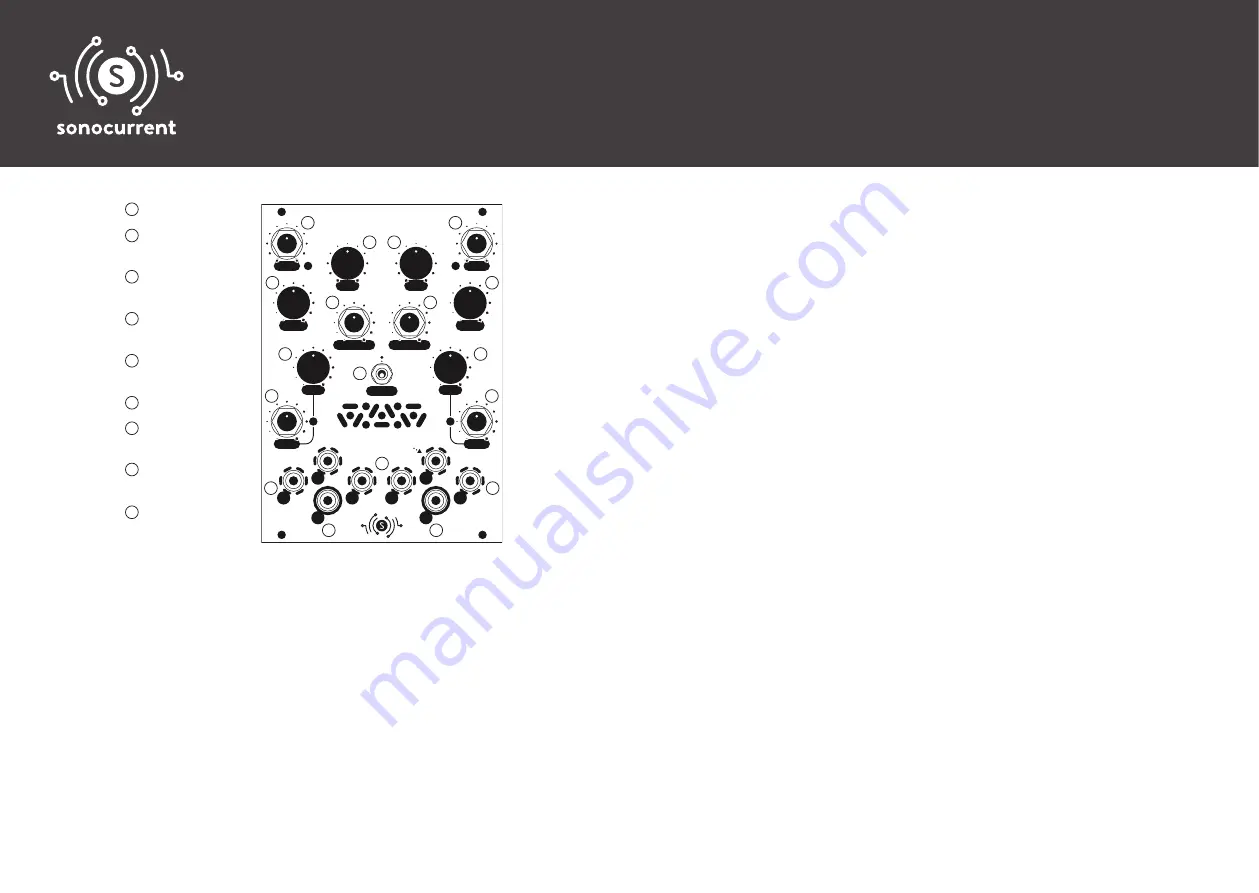
modular system guide
group M: signal modifiers
M T₂D dual triode distortion
Bias
The tube bias controls influence the final wave shape and perceived
character of distortion; settings near the middle are typically the most
versatile, while settings near either end of the range can be interesting
for more extreme distortion, and to influence the texture of any self-
oscillation of the feedback loops when they are near their maximum
levels. An external control voltage can be applied, with the manual control
setting the center or resting point for any applied modulation.
Tilt
The spectral tilt filter controls alternately boost or cut the high and low
frequencies of the input signal, centered at approximately 680Hz. This
filter also greatly influences the self-oscillation of the feedback loops at
their highest levels, and can provide a limited control of the feedback
pitch.
Drive
The drive controls provide manual attenuation of the input signal before
the tube distortion is applied. These will often be left near their maximum
for stronger distortion sounds, as the dry/wet mix controls can then be
used to reduce the final distortion if desired. Lower drive settings can be
very useful for taming the character of high feedback levels.
Feedback
The feedback controls allow the signal after the triode distortion stage
to be returned to the input, just before the tilt filter. Higher settings
will increase the amount of feedback to the point of self-oscillation, at
tube bias control
spectral tilt filter
control
triode input
attenuation
feedback loop
attenuation
tube plate voltage:
12V or 5V
dry/wet mix control
dry/wet mix CV
input attenuation
CV inputs: dry/wet
mix & tube bias
channel inputs &
outputs
M T₂D
dual triode distortion
cv m₁
cv m₂
tilt₁
mix₁
tilt₂
mix₂
bias₂
drive₂
feedback₂
feedback₁
drive₁
voltage
bias₁
o₂
i₂
b₂
m₂
o₁
o₁
i₁
m₁
b₁
1
1
1
2
2
2
3
3
3
4
4
4
5
5
6
6
6
7
7
7
8
8
8
8
9
9
9
All controls provide comparable, but independent, adjustment of their
respective function for each channel, except for the plate voltage
switch, which is a global setting.
+12V: 111mA • -12V: 65mA • 18HP • 35mm • 202g
The M T2D dual triode distortion presents two independent channels of
distortion which can be patched separately for different sources, stereo
signals, parallel processing of a single source, or in series for the greatest
amount of distortion for a single source.





















